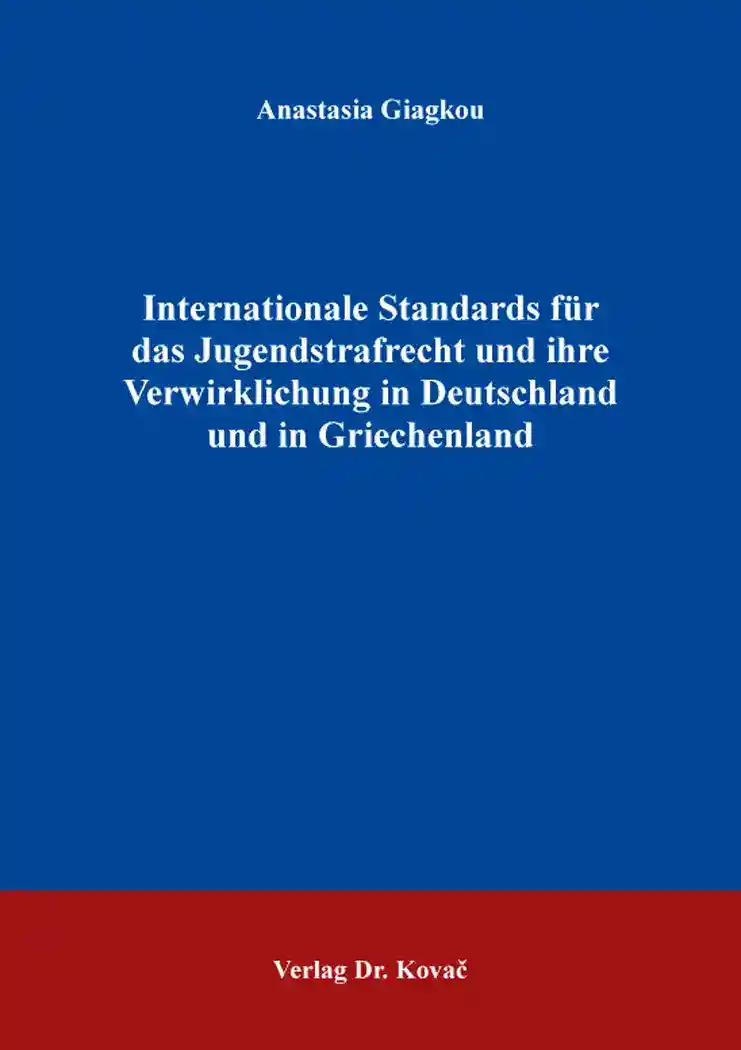Anastasia GiagkouInternationale Standards für das Jugendstrafrecht und ihre Verwirklichung in Deutschland und in Griechenland
Strafrecht in Forschung und Praxis, volume 402
Hamburg 2022, 666 pages
ISBN 978-3-339-12778-5 (print)
ISBN 978-3-339-12779-2 (eBook)
About this book deutschenglish
This study aims to present the international human rights standards for juvenile delinquents in a systematic way and furthermore to examine the question of whether and to what extent these standards are implemented in Germany and in Greece. The focus is on the comparative intercultural aspects of the thesis, highlighting the need for a deeper understanding and a more efficient implementation of children’s human rights in both countries.
In the first part, emphasis is on the history of children's rights in the 20th and 21st centuries. The systems of the League of Nations, the United Nations and the Council of Europe as well as the system of the European Union for the treatment of juvenile offenders are presented and the most important legislative binding and non-binding instruments in juvenile criminal law at the level of the United Nations and the Council of Europe are elaborated.
In the main part, the international human rights standards for young offenders are presented in more detail. By systematizing and categorizing the international legal norms concerning juvenile criminal law, the most important principles of juvenile criminal law are derived. Furthermore, whether and to what extent these principles are applied, both legally and practically, in Germany and in Greece is analyzed.
According to the international human rights standards, an independent juvenile justice system shall be established so that it can serve the aims of the social integration and education of juvenile offenders. The commission of criminal offenses is a prerequisite for the application of juvenile criminal law and status offenses are excluded. The minimum age of criminal responsibility should not be set very low and basic procedural rights must be guaranteed. The least repressive intervention in the sense of diversion and educational measures has priority and deprivation of liberty should be imposed as a last resort and for the shortest possible duration. If imprisonment cannot be avoided, the treatment of juvenile offenders in detention centers must be humane and promote the juvenile offenders’ education and social integration over the long term.
Under the influence of international standards in recent decades, German and Greek juvenile criminal law has become more progressive and modernized, but further improvements in both legal systems are required.
In the final part, the core idea of this work is explained. The international standards for juvenile criminal law represent basic guarantees of the most important human rights for young offenders and form the basis for a decent life. Their aim is the establishment of a humane, just and rational system of juvenile criminal justice, which will facilitate the young offenders’ social integration with the consideration for the victims’ interests and the promotion of peaceful coexistence.
